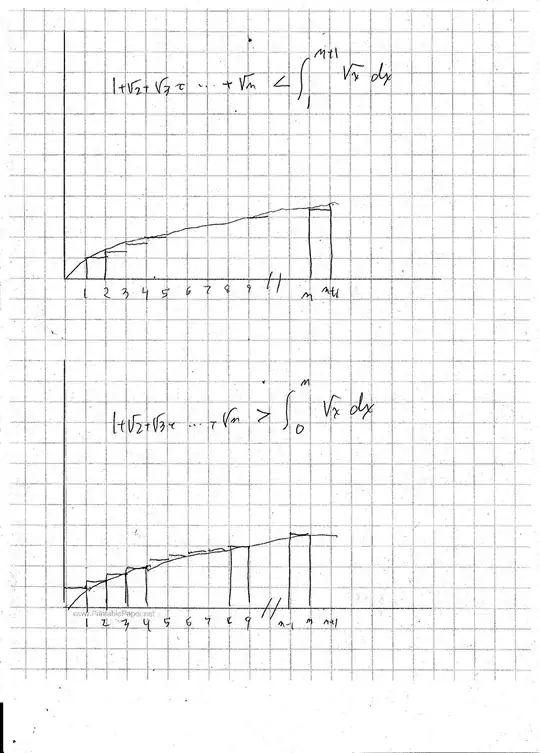$$\lim_{n \to \infty} \dfrac{\sqrt 1 + \sqrt 2 + \dots + \sqrt{n}}{n\sqrt{n}}$$
$$\lim_{n \to \infty} \dfrac{\sqrt 1 + \sqrt 2 + \dots + \sqrt{n}}{n\sqrt{n}} =\lim_{n\to \infty} \dfrac1{n}\sum^{n}_{k = 1} \sqrt{\dfrac k n} $$
While searching this question I found, Turning infinite sum into integral.
Like in the accepted answer I first compared my series to LRAM,
$$\int_a^b f(x)\,dx=\lim_{n\to\infty}\frac 1n\sum_{i=1}^n f\left(a+\frac{b-a}n i \right)$$
I got $a = 0$, $b = 1$ and $f(x) =\sqrt{x}$ so,
$$\int_0^1 \sqrt{x}\ dx = \dfrac2 3$$ should be the answer.
Is there any simpler method to do this sum ? I have not learnt this method to do infinite sums so I can't use it.
